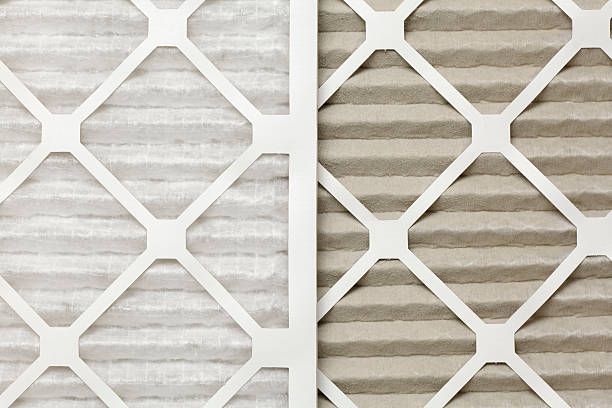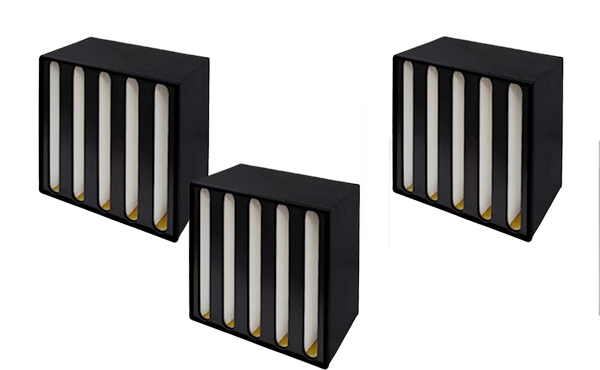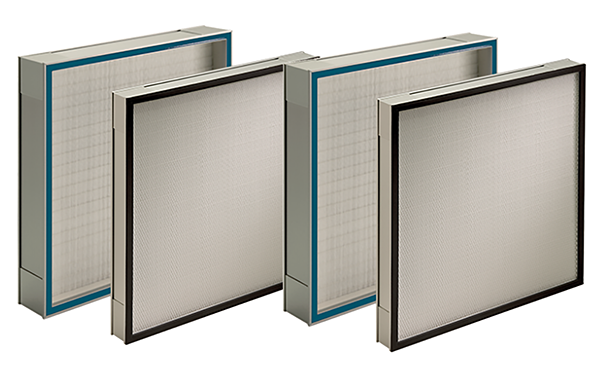Ryan Berkley, CAFS, is president of B&B Filters. As a Certified Air Filter Specialist by the National Air Filtration Association (NAFA), Ryan has completed extensive training and testing in the field of air filtration and has a thorough understanding of air filtration principles, technologies and practices. This high level of filter expertise allows Ryan to provide school districts, universities, hospitals, manufacturers, laboratories, research facilities and others customized, quality solutions to their air filtration needs.

Commercial Filter Maintenance: Ensuring Optimal Performance
Regular maintenance of commercial filters plays a pivotal role in upholding their performance and durability over time. When filters are neglected, they can quickly become clogged with dirt, dust, and other particulates. This leads to a significant drop in efficiency as systems such as HVAC units struggle to pull air through dirty filters.
Consistently monitoring your filters also enhances the air quality within your environment. Filters act as barriers that capture unwanted pollutants, but an overloaded filter loses its effectiveness.
It's essential to recognize that indoor air quality is not just a comfort issue — it has health implications too. Poor air quality can lead to discomfort for employees, potentially decreasing productivity and affecting overall morale.
4 Maintenance Tips
Establishing a regular maintenance schedule is fundamental to achieving optimal filter performance. Here are four tips we recommend:
- Inspect Filters Monthly: Making inspections a habit allows you to catch issues early on. During these checks, look for signs of dust accumulation or discoloration. These are indicators that the filter may need attention sooner rather than later.
- Replace Per Manufacturer Guidelines: While many filters last three to six months on average, high-traffic areas can demand more frequent replacements. Adjusting your replacement plan based on usage can save you from inefficiencies.
- Clean Washable Filters: If your system employs washable filters, be sure to clean them regularly. Not only does this practice extend the lifespan of your filters, but it also ensures peak performance.
- Monitor Performance: Keeping an eye on airflow and water pressure indicators offers vital insight into the health of your filters. Noticeable changes in these readings can indicate the need for immediate maintenance or replacement.
By integrating these maintenance practices into your routine, you actively contribute to the sustainability and effectiveness of your filtration systems while enhancing the overall efficiency of your commercial application.
Assessing Filter Effectiveness
Understanding how to assess filter performance is also crucial for ongoing improvement. To truly grasp filter effectiveness, it's essential to focus on key performance indicators that highlight filtration capabilities and ensure operational efficiency.
For instance, air filters use a standard known as MERV, which stands for Minimum Efficiency Reporting Value. This rating system scales from 1 to 16, where higher numbers reflect superior particle removal capabilities.
Consider MERV 13 filters; they possess an impressive ability to remove around 90% of particles ranging from 1 to 10 microns in size. This means that not only do they handle larger dust and pollen particles, but they also significantly reduce indoor allergens. This is an important consideration for commercial spaces where health is of utmost priority.
Water Filtration Effectiveness
On the other hand, water filters evaluate their effectiveness through the percentage of contaminants they can remove. A classic example includes reverse osmosis systems, which boast a staggering capability of eliminating up to 99% of common contaminants, such as lead and bacteria. Such high percentages indicate cleaner water and a safer drinking environment for employees and customers.
However, raw figures don't paint the entire picture. Consistency in performance is paramount. Regular checks on filter status and understanding when they need replacement ensures optimal airflow or water quality is maintained without interruption.
Furthermore, assessing filter effectiveness also involves evaluating how environmental factors come into play — after all, sustainability practices shape today's commercial landscape.
Exploring the relationship between filtration systems and their ecological footprint reveals further considerations for responsible business operations.
In adopting sustainable filtration solutions such as biodegradable filters or UV water purifiers, your business can play a crucial role in fostering environmental stewardship while ensuring effective operation.
For personalized recommendations and expert guidance on selecting the right air and water filters, please contact B&B Filters at 423.775.2932 or email us.
Share
Similar Posts










